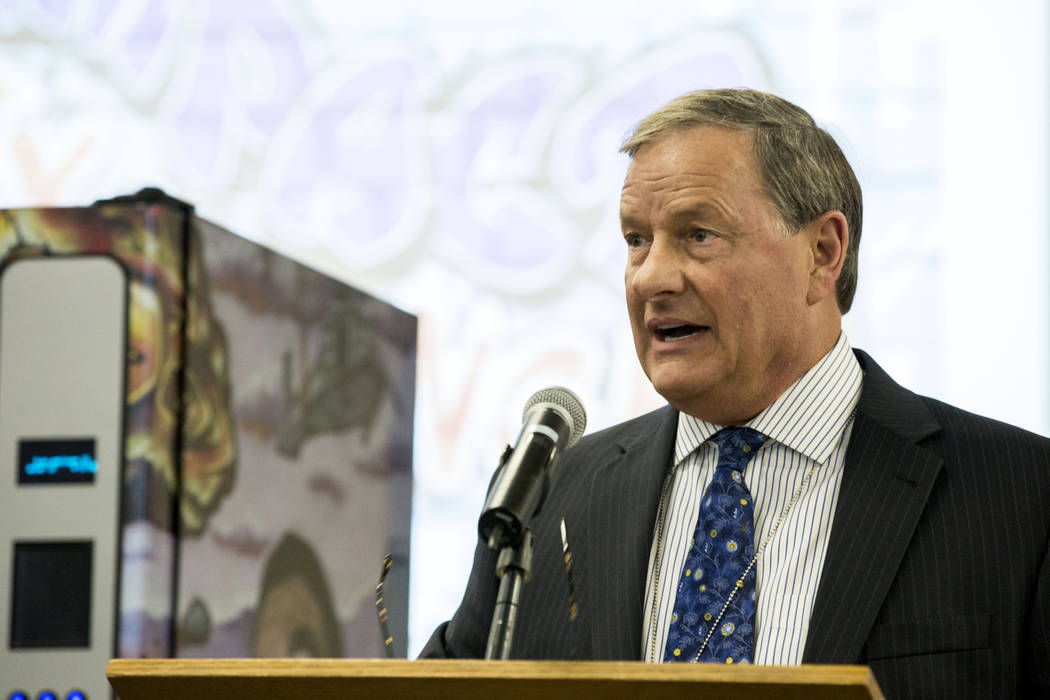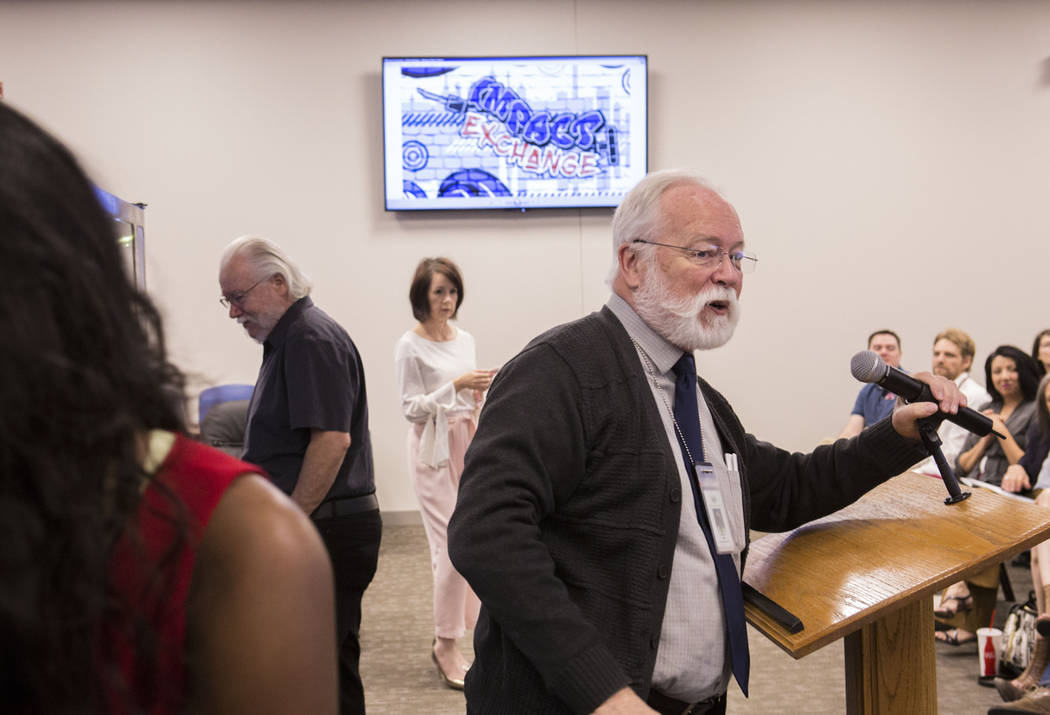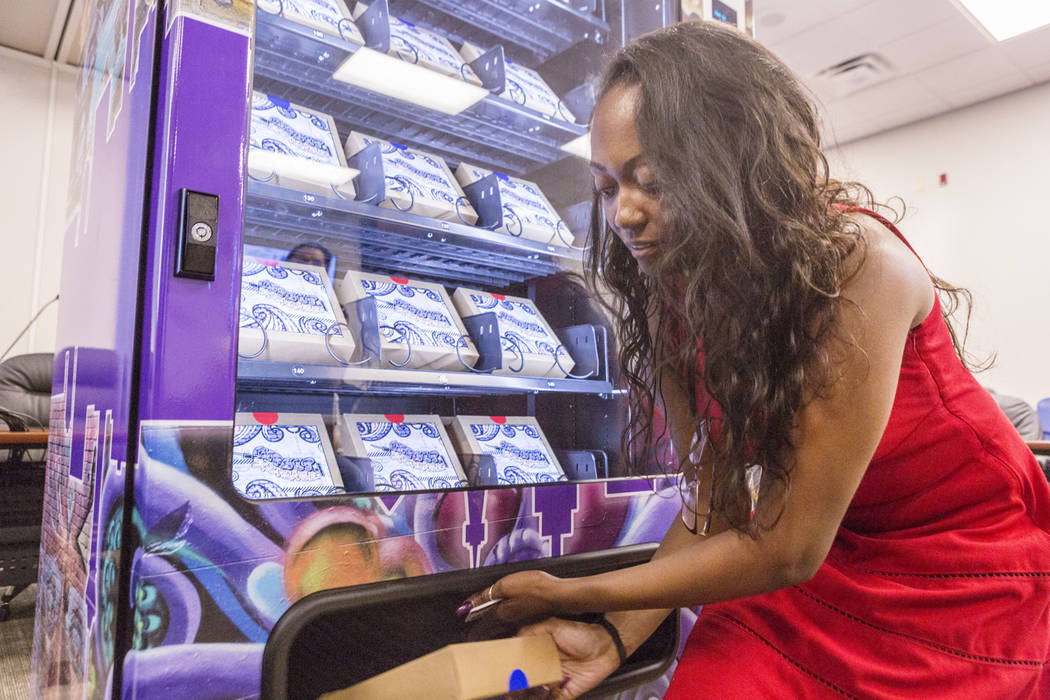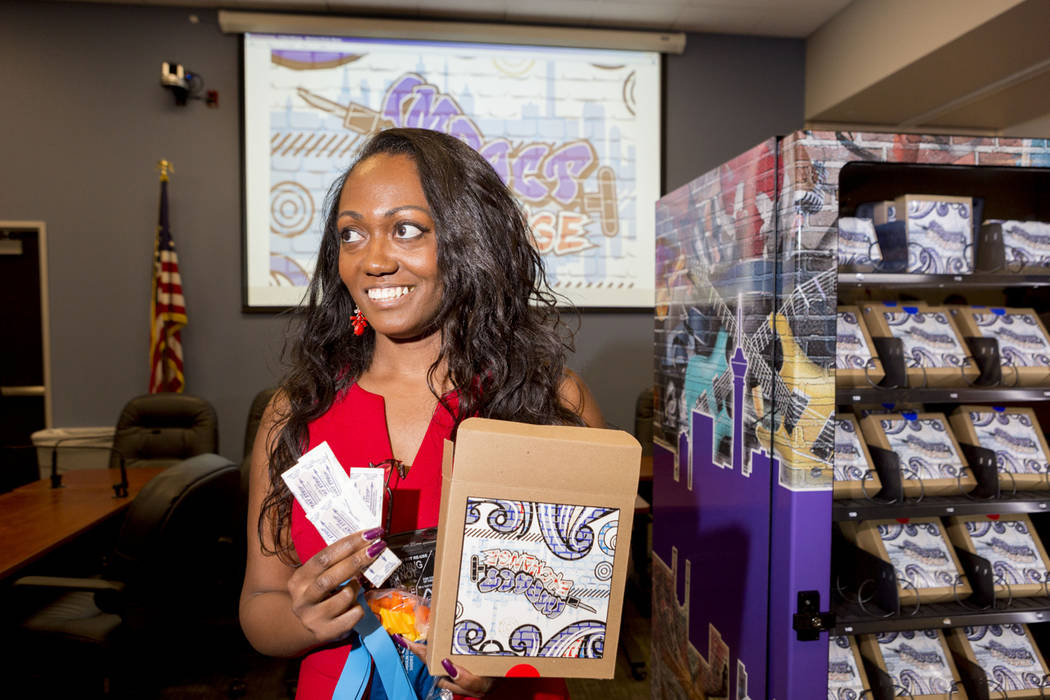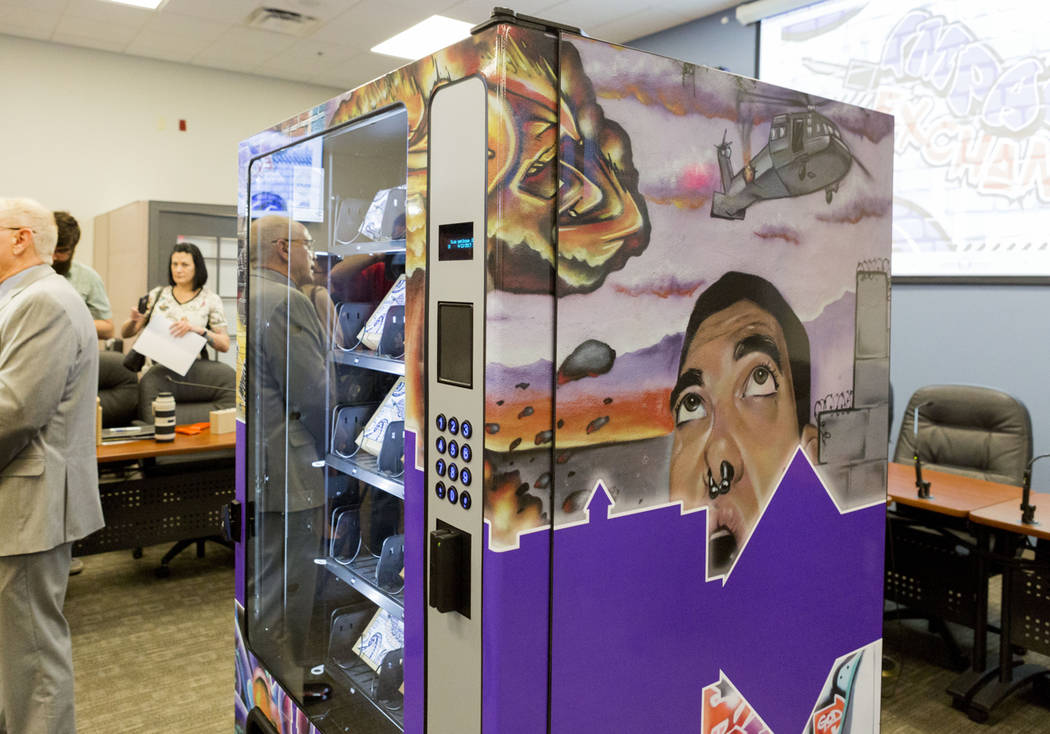Nation’s first public needle vending machine for drug users debuts in Las Vegas
Las Vegas health officials are turning a familiar piece of equipment — the vending machine — into a first-in-the-nation experiment to automate the dispensing of clean needles for intravenous drug users.
The program is a joint effort between the Southern Nevada Health District, the Nevada AIDS Research and Education Society and Trac-B Exchange, which developed the machine. The idea is that making clean needles and other gear available will reduce the spread of bloodborne infections among drug users who would otherwise share the injection rigs.
The materials for the program were funded by private donations through Trac-B Exchange.
“Having access to clean syringes is a harm-reduction approach that’s going to allow people to protect themselves against getting communicable diseases such as HIV and hepatitis C,” Chelsi Cheatom, program manager for Trac-B Exchange, said after a news conference Wednesday to unveil the machine.
The machines, which resemble those that dispense snacks, will distribute cardboard boxes containing clean syringes and disposal containers for used needles. They will also offer kits for wound cleaning and safe sex. Users will have to register first to receive a swipe card and unique identification number that they can use to receive up to two kits per week
Machines will be available by the end of May at Trac-B Exchange, 6114 W. Charleston Blvd.; Aid For AIDS Nevada, 1120 Almond Tree Lane; and the Community Counseling Center, 714 E. Sahara Ave.
“This is like our heart and soul. Seeing this happen is actually like a dream come true,” said Michele Jorge, HIV lab director at the Community Counseling Center.
Patrick Bozarth, the center’s executive director, said the machines will be housed in a private office in his facility. A case manager will be available to help those who need clean syringes, provide them with any other services they require and, if possible, assist them with finding treatment, he said.
People who need clean needles can register at any of the three locations without providing personal identifying information.
Marlo Tonge, manager of the office of epidemiology and disease surveillance for the health district, said there are about 5,800 known active intravenous drug users in Clark County. But she said that figure drastically understates the true number and that injection drug use is on the rise.
The program intends to offer users a low-pressure way of increasing safety and decreasing the stigma behind the illegal activity.
“The community is underground, and it takes a lot of time to build that trust,” she said.
According to the health district, nearly 1 in 10 new HIV cases in the region is traced to use of injected drugs.
Health officials say needle-exchange programs have proven effective in reducing the spread of infections.
“It’s a very successful intervention to do harm reduction,” Dr. Joseph Iser, the district’s chief health officer, said at the news conference.
Contact Blake Apgar at bapgar@reviewjournal.com or 702-387-5298. Follow @blakeapgar on Twitter.
Federal funds and needle exchanges
Tonge said she had been brainstorming ways to set up vending machines for the better part of a decade, but started serious discussions with senior health district officials last year.
Her office contributed data used in setting up the program, but did not contribute materials.
The program is funded by private donations through Trac-B Exchange.
Congress lifted a longstanding ban on federal funding for needle-exchange programs last year, but any federal contributions may not be used to purchase the needles themselves.
The Trump administration's position on funding needle exchanges is unclear.




